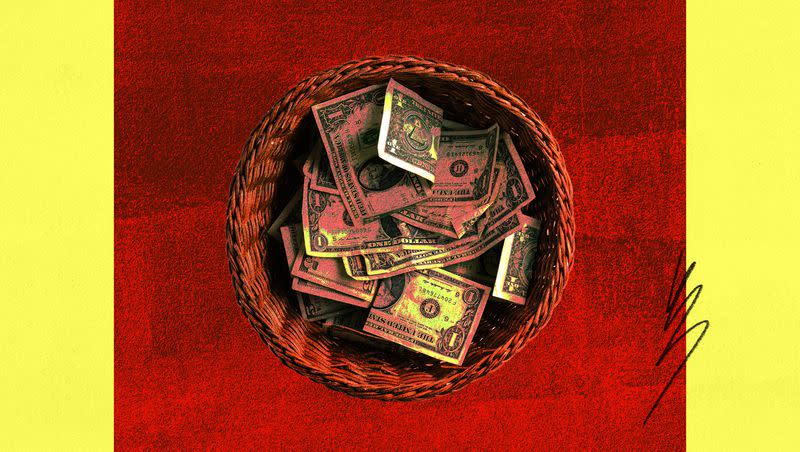Church-related scams may be more common than you think

The rise of smartphones and mobile payment apps has brought with it a new kind of faith-based crime: scams in which someone impersonates a religious leader and texts a large group of church members asking for urgent donations.
But even as these digital misdeeds become more common, criminals continue to capitalize on the innate trust that many Americans have for faith leaders.
Earlier this year, a man posing as a Catholic priest was able to steal $500 from a Houston church and infiltrate several other houses of worship.
“The unidentified man has also been active in California, Oregon and Ontario, according to memos from March and April from the United States Conference of Catholic Bishops, which warned of a man posing as a priest who had gained access to parish offices and who was ‘likely responsible for stealing $1,770 from a parish in Oregon,’” The New York Times reported.
Related
In the Houston church, the man called himself Father Martin and told community members he was a visiting priest staying on church grounds.
He convinced them to let him into a locked room and then proceeded to take cash from a real priest’s wallet, according to the Times.
“The man then left the building and fled in a vehicle,” the article said.
In Dallas, the same man went to six different churches on the same day, but failed to gain access to storage areas for church funds.
“We work often enough with priests from other dioceses to understand that this didn’t seem legitimate, so these encounters were reported to our Office of Security and Emergency Management at the diocese,” said Katy Kiser, communications director for the Catholic Diocese of Dallas, to The New York Times.
A spokeswoman for the Dallas Police Department told the Times that the unidentified man is not under investigation there, since he did not manage to take any money and since “there is no criminal charge in Texas for impersonating a priest.”
Other priest impersonators have faced extensive charges. For example, Erwin Mena was charged with grand theft, perjury and practicing medicine without a license after a church in California realized he’d been scamming them for months.
Mena “allegedly posed as a priest and officiated at Masses, funerals, confessions and at least one marriage,” according to The Associated Press, noting that the Archdiocese of Los Angeles was aware of dozens of such fraudsters operating in the area. Mena was also accused of selling phony tickets for a nonexistent opportunity to meet Pope Francis.
Mena was ultimately convicted of grand theft in February 2016 and sentenced to a few months in jail. When he got out, he resumed his scam, the Los Angeles Times reported.
In November 2016, a judge ordered Mena to steer clear of Catholic churches in the future.
“The judge ... imposed a special protective order that, upon his release, bars Mena from coming within 100 feet of an Archdiocese of Los Angeles facility,” the Los Angeles Times reported.
Also in California, restaurant owners were found by the U.S. Department of Labor to have used a man impersonating a priest to try to extract work-related confessions out of restaurant employees.
“The U.S. Department of Labor on June 12 said the use of the supposed priest was ‘among the most shameless’ of corrupt actions employers have used against employees,” Catholic News Agency reported.
One employee told the Justice Department that they found it strange that the supposed priest was really only interested in work-related sins.
“According to the employee, the supposed priest ... asked them if they had stolen from their employer, been late for work, or done anything to harm their employer. The purported priest also asked if they had bad intentions toward their employer,” Catholic News Agency reported.
One reason why faith-related scams can be effective is that many Americans assume that members of the clergy are honest and ethical. A recent Gallup study showed that, although trust in faith leaders has eroded over the past few decades, it remains relatively high compared to other professions.
In December 2021, 36% of U.S. adults told Gallup that they rate the honesty and ethical standards of members of the clergy very high or high. Only 14% of Americans rated the clergy low or very low.
Members of the clergy fared better in the study than bankers, lawyers, newspaper reporters, business executives, state and local politicians, members of Congress and car salesmen, according to Gallup.
But they received lower honesty and ethics ratings than nurses, doctors, pharmacists, grade school teachers, members of the military, police officers, day care providers and judges.

